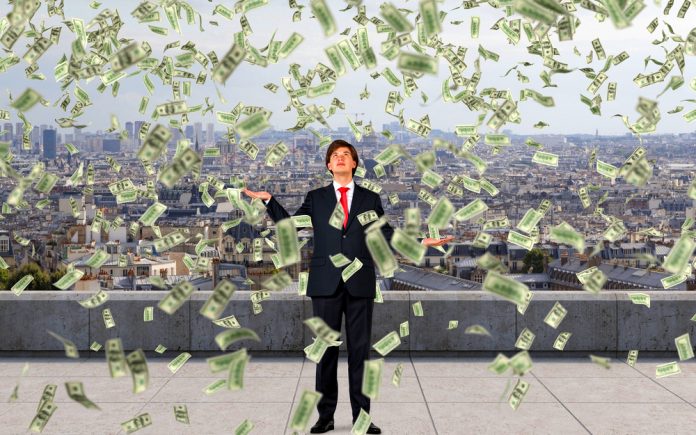
By Haddon Libby
During the 17 month period between the start of the pandemic and June 30th, the Federal Reserve and US Treasury removed $8 trillion in bonds from the market. This means that an additional $8 trillion in cash was freed up and available to look for other investments.
In addition to this fiscal easing, the Federal Reserve reports that the US Money Supply grew by $5.4 trillion to $20.4 trillion since the pandemic began. By the time the United States is done with pandemic-related relief and stimulus, it is expected that the U.S. will have grown the federal deficit by $16 trillion to keep the fabric of our country together.
This flush of cash into the economy had the desired effect of keeping the economy together. While tens of millions of Americans needed relief to get by, others saved an estimated $2.9 trillion during the pandemic adding to the swollen cash coffers across the US economy.
To try and put this extraordinary stimulus and relief into perspective, the money supply has increased by more than one-third over the last 17 months. With this level of cash creation, it makes sense then that asset values have increased in line with the effective devaluation of the underlying currency. According to Kyle Bass, best known for his bets against the US subprime mortgage business prior to the Great Recession, believes that the real rate of inflation at present is 12%. Whether transitory or permanent, a 12% inflation rate against a backdrop that includes a 33%+ increase in the money supply and record savings levels causes real assets like housing or stocks to rise in value.
So which investments have been unable to keep up with Bass’ inflation rate? Oddly, investments perceived as safe have done the worst. Gold has an 8% return while bonds produced a 2.5% return. This means that the most conservative investors had rates of return that did not keep up with rising prices.
Which asset types did the best? Stocks in Technology or Growth put up 40% yet they lagged Consumer Cyclicals that posted a 43% return. Cyclicals are stocks like Microsoft, Apple, Amazon, Google, Facebook and Tesla. These stocks not only dominate the Cyclicals sector but Growth and Technology as well as Communications as Facebook and Google are now considered Communications stocks.
For comparison, the Dow Industrials Index that tracks 30 of the top American companies was up 15%.
Where growth companies were up 40%, value companies were up only 14%. Companies characterized as value stocks include United Health, Home Depot and McDonalds. These types of companies typically pay dividends.
If you are going to stay ahead of the negative impact of higher prices, there are a couple of things that you can do.
Fix your costs wherever possible.
People owning homes should secure fixed rate mortgages and buy solar power systems to avoid the impact of rising energy prices.
Renters should save for a home purchase. Those who cannot save enough to buy a home and do not have a career path that will improve their financial situation should think seriously about increasing skills through education.
Retirees need to think about higher holding in dividend-paying equities to offset some of the impact of interest rates that are well below the rising cost of living. A portfolio dominated by bond funds or long-dated bonds may not provide the income needed to sustain your lifestyle through retirement due to prices increase.
If you need help with planning, find an investment advisor at an RIA firm like us that performs to the Fiduciary Standard of Care like me. By law, RIA firms and their advisors cannot earn hidden fees like broker-dealers eliminating a major potential conflict of interest when serving you.
Haddon Libby is the Founder and Chief Investment Officer of Winslow Drake, a State-Registered Investment Advisory company located in the Coachella Valley and recipient of the 2020-2021 Small Business of the Year Award by the Cathedral City Chamber of Commerce. For more information on our services, please visit www.WinslowDrake.com or email me at Hlibby@WinslowDrake.com.










































